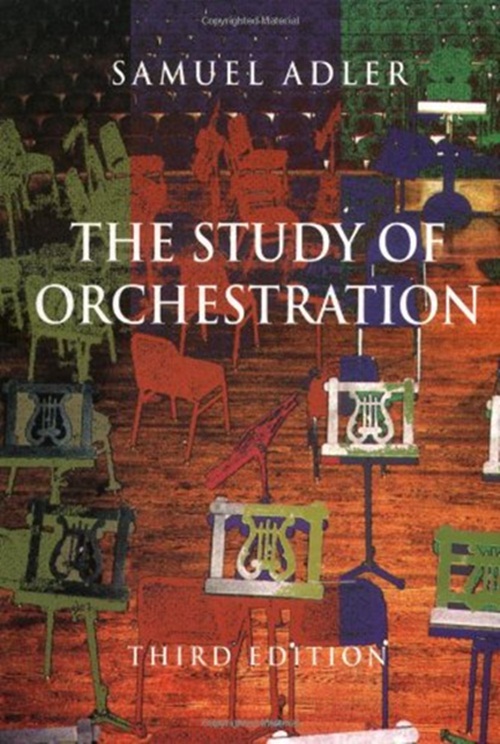
3 Awesome Orchestration Guides
[flickr id=”8394526631″ thumbnail=”large” overlay=”true” size=”original” group=”” align=”none”]
Orchestration is a major part of scoring for films. Textures and stacking define time, place, mood, and character in an important way. Even if a composer chooses not to work in the realm of traditional orchestration, the principles still remain the same. As Ambassador for the Music Composition for the Screen MFA program, I am sometimes asked about the best resources for brushing up on orchestration. Here are my top 3:
1. Samuel Adler’s book The Study of Orchestration.
Is it cheap? No (about $100), but it is by far the best resource out of the three listed here. Samuel Adler teaches Composition at Juilliard School of Music. He studied with Aaron Copland and Paul Hindemith, to name a couple. He has been teaching some of the brightest and best modern art composers there at Juilliard since 1997.
I have read a good portion of his textbook, and there isn’t a bad page. Even the introduction is fascinating. He goes through each of the sections of the orchestra and then gives a review of each instrument. There are many examples from famous pieces and also a section showing the transpositions, ranges, and textures of individual instruments. It goes through the basics of good orchestration, and if one person memorized all that was in there, they would be set.
2. YouTube Channel OrchestrationOnline.
[youtube]http://www.youtube.com/watch?v=lcyuESHHAIg[/youtube]
If you haven’t subscribed to this guys channel yet, do it! Composer Thomas Goss posts some excellent videos about techniques and theories of orchestration. These are great videos, and they’re free. Have a look around his channel!
[flickr id=”8394526263″ thumbnail=”large” overlay=”true” size=”original” group=”” align=”none”]
Current grad student Sergei Stern tipped me off to this excellent, free resource on Orchestration. You can go to this link and download a PDF of the entire book or click the link in the title for other options.. If you don’t want to fork out the money for the Adler, take a look at this. It was published in 1914, so it’s a little dated, but I can guarantee that there are some principles in there that are timeless. You can also check out some reviews of the book on Amazon here!
